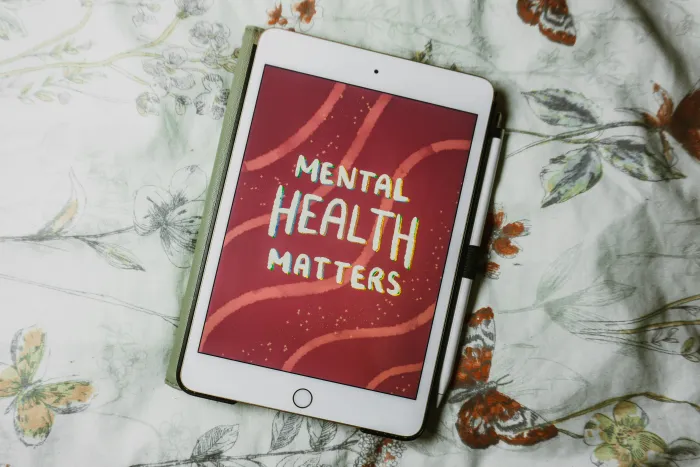
As we mark World Mental Health Day today, we must recognise that the need for mental health support among children and young people in South Africa is urgent, says the writer.
Image: Supplied
Recently, I took part in a published debate series in the Journal of Child and Adolescent Mental Health on the future of universal or school-wide mental health interventions.
These interventions aim to reach all learners in schools, not only those already identified as needing help. The goal of most of these interventions is to equip children with skills that protect their mental health and wellbeing and help them to seek more targeted support when challenges arise.
Scepticism about these approaches has grown internationally. Large studies that randomly assigned participants (randomised controlled trials – RCTs) in high-income countries have shown modest or mixed effects of these approaches and, in a few cases, no measurable improvement, or even worsening of symptoms of common mental health conditions like depression.
These findings have raised doubts about whether school-wide mental health lessons were worth the effort.
However, they also revealed something important: programmes like these that are scaled up without being tailored to local realities, adequately prepared facilitators, or without including the voices of young people are unlikely to succeed.
The lesson is not that schools cannot play a role in the early identification or prevention of mental health problems, but rather that the success of the approaches depends as much on how, when and by whom they are delivered as on what they contain.
As we mark World Mental Health Day today (October 10), we must recognise that the need for mental health support among children and young people in South Africa is urgent.
While mental health problems among young people are increasing worldwide, local children face additional stressors like poverty, school and community violence and persistent inequality.
Specialist mental health services reach only a small proportion of those who need care. Schools are therefore the most practical platform for prevention and early support, as this is where most children and young people can be accessed.
While evidence from high-income countries is important and necessary to consider, it cannot be used to dismiss the need and value of school-based approaches like these in contexts like ours, where challenges and resources are fundamentally different.
Encouraging findings from local school-wide pilot studies show that pursuing these approaches in South Africa are acceptable and feasible. For example, Four Steps to My Future (4STMF) is an eight-session classroom-based programme grounded in cognitive-behavioural therapy principles (techniques to explore the links between thoughts, emotions and behaviour).
The programme, which was developed with the help of young people, their parents, teachers and school counsellors, was delivered by trained postgraduate psychology students working with the NGO Community Keepers in two public primary schools in the Western Cape.
Over eighty percent of Grade 5 learners in those schools participated. Teachers rated the facilitators highly, and children said they enjoyed the sessions and used the skills at home.
Further, findings showed gains in self-esteem and emotional regulation, and identified an urgent need to involve parents and caregivers in school-based mental health initiatives so that skills can be reinforced at home and possibly also support the mental health of caregivers. These results showed that trained non-specialists can deliver school-wide programmes in under-resourced schools.
Another pilot study in South Africa, project HASHTAG (Health Action in Schools for a Thriving Adolescent Generation), was also co-developed with adolescents to provide them with psychosocial support in schools. The programme focused on emotional regulation, stress management, coping and problem-solving skills, healthy relationships, assertiveness, mindfulness and age-appropriate drug- and alcohol-awareness.
Project HASHTAG combined group classroom sessions with activities to promote a positive school culture and gave students a voice through School Action Groups. As with 4STMF, learners preferred that the programme be delivered by facilitators external to the school, reflecting the need for a task-sharing approach in South African schools.
While pilot studies such as these are promising, they are small in scale and only tell us whether schools will agree to participate, whether facilitators can be trained effectively and whether learners engage with the content.
Studies that compare different groups randomly (RCTs), by contrast, are larger and more rigorous and can tell us whether any improvements in mental health and wellbeing are caused by the programme itself rather than by other factors.
Both 4STMF and HASHTAG, and others similar to these in South Africa, now need to be tested through RCTs that consider the diversity of local schools. Such research would clarify how context influences delivery, and what investments and adaptations are required for different school environments to support sustainable scale-up.
If these lessons are eventually embedded in the national school curriculum and delivered by teachers, their mental health and wellbeing will also need to be prioritised to ensure buy-in and sustainable delivery.
When implemented effectively, school-wide mental health lessons have the potential to have ripple effects throughout an entire community, beyond the school. To progress from promising pilot studies to national benefit, South Africa will need targeted investment in such initiatives, informed by the voices of young people. This will ensure that every learner, regardless of their school’s resources or where they live, receives the skills needed to thrive.
| Coetzee is an associate professor in the Department of Psychology at Stellenbosch University.
Related Topics: